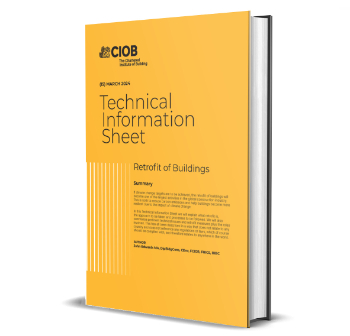Contractor's master programme
Contracts may require that the contractor provides a master programme for the construction of the works as soon as possible after the execution of the contract, if it has not been previously provided. However, as it is produced after the execution of the contract, the programme does not impose any obligation on the contractor beyond those obligations imposed by the contract documents.
For clarity, the contract documents should specify the level of detail required by the contractor's master programme, which may include critical paths and other information allowing the contract administrator to interrogate the programme and properly assess its implications.
The contract administrator may comment on the contractor's master programme but should not approve it, as approval might be considered to relieve the contractor of liability for programming the works in such a way as to achieve the completion date.
In making any comments, the contract administrator may wish to consider whether the master programme properly reflects the requirements of the contract (such as the inclusion of the appropriate milestones), whether it contains errors and whether it will make unrealistic demands on the consultant team to produce or comment on information.
The programme may be used as the baseline for a claim for an extension of time by the contractor, and the contractor is generally required to update the master programme as the works proceed to reflect any extensions of time that have been granted.
Under the NEC (The New Engineering Contract): Engineering and Construction Contract, requirements regarding the preparation of the contractor's programme are more specific, and upon acceptance it becomes the ‘accepted programme’ for the works.
There is "...nothing in the (JCT) contract that obliges the contractor to have a master programme." [ref Chappell, D. (2014). The JCT Standard Building Contract 2011. 1st ed. John Wiley and Sons Ltd., p.100]. The contractor merely has to provide it if they have created one, although it could be argued that on any sizeable contract it would be virtually impossible to complete the project without a master programme.
NB: The completion date indicated on the contractor's master programme may be earlier than the completion date entered into the contract.
[edit] Related articles on Designing Buildings
- Accepted programme.
- Activity schedule.
- Baseline programme.
- Construction contract.
- Contractor.
- Contract administrator.
- Contract documents.
- Contract programme
- Contractor's working schedule.
- Design programme.
- Extension of time.
- How progress is agreed in construction.
- How to manage construction plant.
- Information release schedule.
- Milestones.
- NEC3.
- Programme.
- Programme for building design and construction.
- Programme consultant.
- Progress of construction works.
- Project crashing.
- Request for information.
- Scheduling construction activities.
- Short period programme.
- Tender works programme.
- Time-location chart.
- Time management of construction projects.
[edit] External references
Featured articles and news
ECA Industry Awards 2024 shortlist revealed
22 leading businesses from across the electrotechnical and engineering services sector.
Government unveils Skills England strategy
Skills England to transform opportunities and drive growth.
New Government Hub for York Given Planning Green Light
For up to 2,600 civil servants, due for completion by 2028.
Construction Skills Certification Scheme cards
July update on Professionally Qualified and Academically Qualified Person Cards.
BSRIA Briefing 2024, November 22
Sustainable Futures: Redefining Retrofit for Net Zero Living.
The CLC on driving competency in the retrofit sector
Previously published roadmap on skills for net zero.
The first labour government King's speech in fifteen years
Construction industry reactions, support and some concern.
CIOB Retrofit of Buildings Technical Information Sheet
What retrofit is, the approach to be taken and processes to be followed.
Adapting Historic Buildings for Energy and Carbon Efficiency
Historic England advice note 18, free download published.
10 retrofit projects revisited 10 years after completion.
Information orders, building liability orders and SPVs
Key BSA terms and how they impact special purpose vehicles.
Listed despite problems with its design.
Zen and the art of cycling exploration.
Design Council Homes Taskforce launched
To support government 1.5 million homes target within UK climate commitments.




















